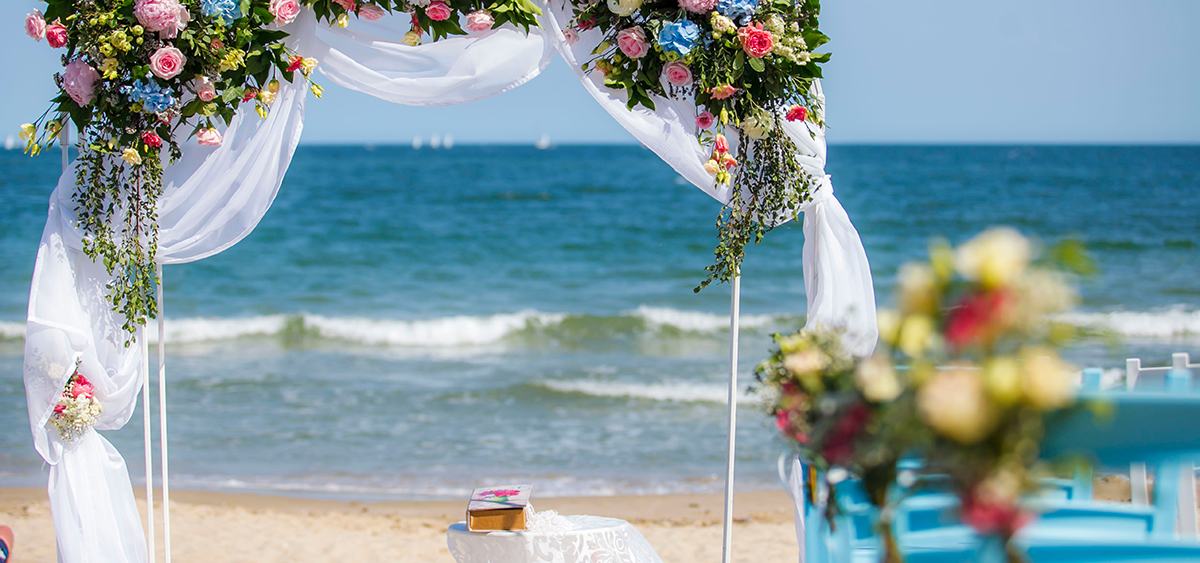Many people dream of getting married under the palm trees by the sea. But before you take the plunge, you’ll need to follow a few important rules. This way you can get married with peace of mind and enjoy your honeymoon even more!

Quebec’s conditions for a valid marriage
A Quebec couple can get married abroad. For the marriage to be recognized in Quebec, it must meet a few basic conditions:
- The two people getting married must be at least 16 years old. If they’re between the ages of 16 and 18, they need the court’s permission to marry.
- They must freely agree to the marriage and understand the consequences. If a person gets married as a result of threats, the marriage isn’t valid in Quebec, regardless of where the threats were made.
- They must be officially divorced, if they were previously married. Quebec laws don’t allow marriage to more than one person at a time.
- They can’t be related. Marriage is permitted between cousins, but not between a father and daughter, a mother and son, or a brother and sister, for example.
Rules of the foreign country
Since each country has its own laws, you’ll need some information before booking your flight! Who can perform the ceremony? Where will the ceremony take place? Will you need one or more witnesses? Are gay marriages legal? Avoid unpleasant surprises by obtaining this information in advance from the country’s embassy or consulate. The Canadian government’s offices abroad may also be able to provide information.
You also need to know which documents the country requires (for example, birth certificates, a divorce certificate, if either of you was married before, and sometimes even blood test results). You may need to have these documents translated into the language of the country and maybe even have them certified by the country’s Canadian embassy or consulate.
A valid marriage once you’re back home
If you’ve followed all the rules, you’ll have the same rights and responsibilities as couples married in Quebec. This means that Quebec laws apply, for example, to the division of property and to support payments. Also, Quebec’s “default” matrimonial regime of partnership of acquests will automatically apply to your marriage. If you wish to choose a different matrimonial regime, you can ask a notary to prepare a marriage contract before you leave.
You don’t have to provide any documents to Quebec authorities for your marriage to be considered valid here. However, it’s a good idea to send the official marriage certificate issued in the foreign country to the Registre de l’état civil du Québec (civil status register). This will make things easier when you need to deal with Quebec departments and agencies. To register your marriage, you must provide proof that your main place of residence is in Quebec. You must also provide an original or certified copy of your marriage certificate. If your marriage certificate isn’t in English or French, you must have it translated by a member of the Ordre des traducteurs, terminologues et interprètes agréés du Québec (professional order of translators).
Marrying a foreigner abroad
Trips to foreign countries can sometimes lead to romance and even a wedding! But things can get complicated if one of the future spouses isn’t from Quebec. For your marriage to be valid, there are several rules to follow. In this case, you should talk to a lawyer or notary.
If you want your new spouse to immigrate to Quebec, there is a whole legal process to be followed. Contrary to what some people believe, marriage doesn’t automatically give your spouse Canadian citizenship. But you can sponsor your spouse to become a permanent resident, as long as certain conditions are met.
Important! Sponsorship lasts for three years from the date the person becomes a permanent resident, no matter what the outcome of your love story! In other words, you’ll be financially responsible for your spouse for three years, even if you get divorced during this period.
For more information on the conditions and process for sponsorship, visit the website of Immigration, Refugees and Citizenship Canada.







